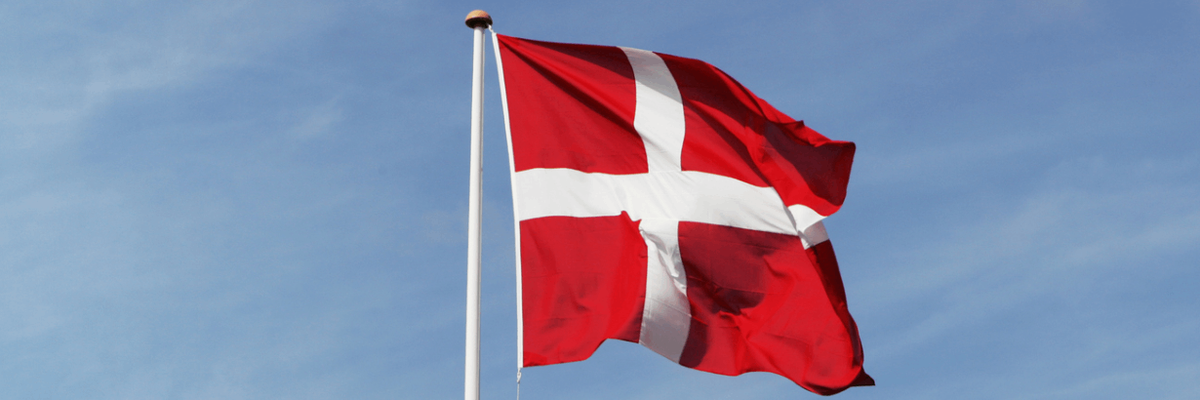Denmark's early election saw the Social Democrats increase vote share
Earlier this month, Denmark held an early general election following collapse in parliamentary support for the ruling ‘Red Bloc’ coalition led by the Social Democrats.
Despite this seemingly difficult political context, the Social Democrats maintained their position as largest party in the parliament, and even increased their vote share by a couple of points to 27.5%.
The Red Bloc overall won 49% of the vote, while the rival ‘Blue Bloc’ won 41.6%, a resounding victory for incumbent prime minister Mette Frederiksen’s Bloc. The leading Blue Bloc party, Venstre, dropped 10 points from 2019, down to 13.3%.
In all, twelve parties passed the 2% threshold required to win seats in the Danish parliament (Folketing). Though neither bloc won a majority in terms of votes, with the support of Faroese and Greenlander party allies, the Red Bloc inched past the parliamentary majority line, winning 90 seats out of 179.
Now, a new post-election survey from YouGov sheds light on the issues which were most important to the Danish people as they went to the polls earlier this month.
Welfare and the economy are the top issues that Danes considered when voting in the 2022 general election
We asked those who voted in the 2022 general election what the most important issues were to them when deciding how to vote. Denmark follows the Nordic welfare model, characterised by universal welfare services, spending some of the highest levels of public money on this in the world. So, it is perhaps unsurprising that, of those who voted in the election, welfare and benefits come out as the top issue, with 47% putting this in their top three. The economy came in second with 39%, followed by the environment (30%) and the cost of living (26%).
Immigration and asylum has been a prominent issue in Danish politics for some time, with the Danish People’s Party revolving their 2015 campaigns around shifting public opinion to the right, and even influencing the parties on the left like Social Democrats to have right-leaning immigration and asylum policies. However, in 2019 a decrease in the importance of the issue saw the Danish People’s Party vote share decline, and now in the 2022 election only one in five voters (21%) put this controversial topic in their top three.
Social Democrat voters prioritise welfare and benefits and Venstre voters the economy
The top issues among Social Democrat supporters are similar to the most important issues amongst the Danish public as a whole. As with the wider public, welfare and benefits was the top issue, although Social Democrat voters put much more emphasis on it. No less than 58% of their 2022 voters put this in their top three most important issues. Joint-second on the list was the economy and the environment, at 32% for both. The cost-of-living then came in close behind, with 30% of Social Democrat voters picking this in their top three.
On the other side of the aisle, the issues most important to Venstre voters were the economy (59%), welfare and benefits (35%), the cost-of-living (27%) and defence and security (27%).
What are the priorities of the new entrants, the far-right Danish Democrats and centrist Moderates?
Two new parties entered the Danish parliament this year. Venstre witnessed a dramatic drop in support this election owing in large part to the arrival of the Danish Democrats, founded earlier this year by Venstre’s former leader Inger Støjberg. Støjberg had been ousted from the party after a Danish court convicted her for illegally instructing authorities to separate asylum-seeking couples where one partner was under 18.
Støjberg continued her hard-line positions on immigration and asylum into her new party leadership, attracting support on the far-right of Danish politics. Despite the controversy, the Danish Democrats did relatively well, gaining 8.1% of the vote.
Most strikingly, but perhaps expected, a huge majority of Danish Democrat voters (72%) put immigration and asylum in their top three most important issues. Welfare and benefits (33%) and crime (23%) were also important issues for the party’s supporters.
Comparing the top issues among 2019 and 2022 supporters of Venstre highlights the reduction in the party’s support from a catch-all right-wing Danish party in the previous election to a much slimmer, centre-right party now. Amongst 2019 Venstre voters one in five (22%) put immigration in their top three most important issues, compared to just 12% of their voters now. Meanwhile, 2022 Venstre supporters are more concerned about the economy (+5), taxation (+4) and less concerned about welfare and benefits (-9) than supporters in 2019.
Looking to the Moderates, welfare and benefits along with the economy come joint top, at 45%. Immigration and asylum, on the other hand, was seen as important by a mere 9%, lowest across all party breakdowns except the Green Left (8%).
Picture: Getty








